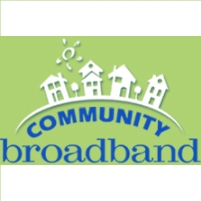Cities Do Broadband Internet Better than Telecoms
Monday, June 27, 2011
 (graphic: communitybroadband.com)
(graphic: communitybroadband.com)
Tired of expensive and poor service, cities across the United States have taken to investing in their own high-speed Internet services and dumping those offered by private telecommunications companies.
More than 50 cities own fiber networks and another 79 own cable networks. Together, these municipal efforts are serving about three million people.
Many city officials now view providing high-speed access to the Internet to their communities and local businesses as essential a service as water, sewer and road systems. Local networks are also often faster and more reliable than those maintained by telecoms.
The move of cities into the Internet business has prompted some telecom companies to adjust their business operations. One example is Monticello, Minnesota, where the city’s fiber network prompted private provider TDS to build its own system, after the company said for years residents didn’t need it.
“If forced to, private companies will compete,” writes David Morris, director of the New Rules Project. “But they much prefer to spend tens of millions of dollars buying the votes of state legislators to enact laws that thwart competition rather than spend hundreds of millions to improve their networks.”
According to New Rules, four states have banned municipal networks: Texas, Arkansas, Missouri and Nebraska. Another 14 have strong restrictions on their development. Although the federal government’s Schools and Libraries Program (also known as E-Rate) provides funds to help local schools and libraries buy broadband, communities are not allowed to use the money to build a municipal network.
-Noel Brinkerhoff, David Wallechinsky
Why Is Mighty Time Warner So Scared of Tiny Salisbury, North Carolina? (by David Morris, Defending the Public Good)
- Top Stories
- Unusual News
- Where is the Money Going?
- Controversies
- U.S. and the World
- Appointments and Resignations
- Latest News
- Musk and Trump Fire Members of Congress
- Trump Calls for Violent Street Demonstrations Against Himself
- Trump Changes Name of Republican Party
- The 2024 Election By the Numbers
- Bashar al-Assad—The Fall of a Rabid AntiSemite






Comments